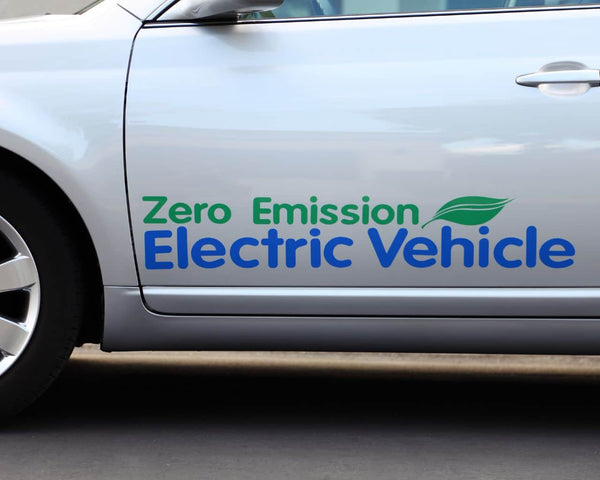Renewed Opposition To EV Mandates From Car Dealerships

Table of Contents
Financial Burden and Infrastructure Concerns
The transition to an EV-centric market presents enormous financial hurdles for car dealerships. Upgrading facilities to accommodate EV sales and service requires substantial investment, creating a significant barrier for many.
High Upfront Investment Costs for Dealerships
Dealerships face steep upfront costs to adapt to the EV market. These costs are substantial and can be prohibitive for smaller dealerships.
- Installation of charging infrastructure: Installing fast chargers and sufficient charging points requires significant capital investment, varying based on the dealership size and location.
- Employee training programs: Mechanics and sales staff need specialized training to handle EV repairs, battery maintenance, and sales consultations. This requires dedicated training programs and ongoing professional development.
- Investment in specialized EV repair equipment: Diagnosing and repairing EVs necessitates specialized tools and diagnostic equipment, representing a further drain on resources.
Industry estimates suggest that upgrading a typical dealership to effectively handle EV sales and service can cost anywhere from $50,000 to well over $200,000, depending on scale and the level of infrastructure required. This financial burden disproportionately affects smaller, independent dealerships.
Lack of Supporting Infrastructure
The lack of widespread charging infrastructure remains a major obstacle for both consumers and dealerships. This is arguably the biggest impediment to successful EV adoption.
- Limited public charging stations: The availability of public charging stations, particularly fast chargers, is uneven across geographical regions, creating range anxiety for consumers and limiting the practical use of EVs.
- Range anxiety concerns among consumers: Fear of running out of battery power before reaching a charging station is a significant barrier for potential EV buyers.
- Uneven distribution of charging networks across different regions: Rural areas, in particular, often lack sufficient charging infrastructure, hindering EV adoption in these communities.
While government initiatives aim to improve charging infrastructure, the current pace is often deemed insufficient to meet the ambitious targets for EV adoption, leaving dealerships bearing the brunt of this shortfall.
Consumer Demand and Market Readiness
Despite government push for EV adoption, consumer demand hasn't matched the pace of mandated changes, creating significant market challenges.
Insufficient Consumer Demand for EVs
The reality is that consumer preference for traditional internal combustion engine (ICE) vehicles still significantly outweighs demand for EVs.
- High purchase prices of EVs: The higher upfront cost of EVs compared to gasoline-powered vehicles remains a major deterrent for many potential buyers.
- Limited model variety: The range of available EV models, particularly in certain segments, is still considerably smaller than that for gasoline-powered cars.
- Concerns about battery life and charging times: Concerns about battery degradation, lengthy charging times, and the overall lifespan of EV batteries persist amongst consumers.
Data from various automotive sales reports consistently show a considerable gap between government-set EV sales targets and actual market figures, revealing a mismatch between policy ambitions and consumer realities.
Concerns about the Reliability and Longevity of EVs
Dealerships also voice concerns about the long-term reliability of EVs and the potential for costly repairs, particularly concerning battery technology.
- Battery degradation: EV batteries naturally degrade over time, leading to reduced range and performance. Replacing batteries represents a significant expense.
- Replacement costs: The cost of replacing an EV battery can be substantial, potentially exceeding the value of older vehicles.
- Lack of long-term data on EV maintenance: Due to the relatively recent introduction of widespread EV adoption, long-term data on maintenance costs and repair frequency is limited.
Reports suggest varying battery lifespans and associated replacement costs, highlighting the need for more comprehensive data on long-term EV maintenance.
Impact on Dealership Profitability and Job Security
The transition to EVs poses significant threats to dealership profitability and the job security of their employees.
Reduced Profit Margins on EV Sales
Dealerships often report lower profit margins on EV sales compared to traditional vehicle sales.
- Lower profit margins per vehicle: EVs typically have lower profit margins for dealerships than gasoline-powered vehicles, reducing overall revenue.
- Increased service complexity: Repairing and maintaining EVs requires specialized knowledge and equipment, potentially increasing service costs and labor time.
- Potential for warranty claims: The relative novelty of EV technology increases the potential for warranty claims, which can impact dealership profitability.
Comparing profit margin data between EV and ICE vehicle sales clearly demonstrates the significant difference in profitability.
Potential Job Losses in the Automotive Industry
The shift towards EVs could lead to job losses within the automotive industry, affecting dealerships and their workforce.
- Reduced need for mechanics specializing in internal combustion engines: As EV adoption increases, the demand for mechanics specializing in internal combustion engine (ICE) repair will likely decline.
- Changes in required skills for dealership staff: Dealerships will require staff with expertise in EV technology, necessitating retraining and upskilling initiatives.
Predictions suggest significant job displacement in areas related to ICE vehicle maintenance, highlighting the need for proactive retraining and upskilling programs.
Alternative Solutions and Policy Recommendations
To mitigate the negative impact of EV mandates on dealerships, a more balanced and collaborative approach is crucial.
Phased Approach to EV Mandates
A phased approach to EV mandates would allow dealerships to adapt gradually to the changing market.
- Incentives for EV adoption: Offering incentives for both consumers and dealerships can stimulate EV adoption and alleviate financial strain on dealerships.
- Investment in charging infrastructure: Increased government investment in widespread and reliable charging infrastructure is crucial.
- Improved consumer education: Educating consumers about the benefits and practical aspects of owning and maintaining EVs will increase consumer confidence.
A phased approach ensures a smoother transition, allowing businesses to adapt their operations and investment strategies.
Collaboration Between Government, Manufacturers, and Dealerships
Effective solutions require collaboration amongst all stakeholders.
- Joint initiatives to improve infrastructure: Government, manufacturers, and dealerships should work together to develop comprehensive charging infrastructure plans.
- Training programs for dealership staff: Collaborative efforts to provide comprehensive training programs for dealership staff on EV technology and maintenance are essential.
- Development of affordable and reliable EVs: Collaboration to produce affordable and reliable EVs with longer battery lifespans will help encourage consumer adoption.
Successful examples of such collaborative efforts can serve as models for future initiatives.
Conclusion: Addressing the Renewed Opposition to EV Mandates
The renewed opposition to EV mandates from car dealerships highlights significant challenges, including substantial financial burdens, insufficient consumer demand, and potential job losses. Addressing these concerns requires a balanced approach, acknowledging the valid points raised by dealerships while continuing to pursue the transition to electric vehicles. A collaborative effort between government, manufacturers, and dealerships is critical to navigate this transition successfully, creating a sustainable and thriving automotive industry that embraces a greener future. Learn more about the ongoing debate surrounding #EVmandates, #cardealerships, and #automotiveindustry and join the conversation to help find effective solutions.

Featured Posts
-
 Washington D C Shooting Israeli Embassy Staffers Among Victims
May 24, 2025
Washington D C Shooting Israeli Embassy Staffers Among Victims
May 24, 2025 -
 Turnir Za 4 Milliarda Pryamaya Translyatsiya Matcha Rybakinoy
May 24, 2025
Turnir Za 4 Milliarda Pryamaya Translyatsiya Matcha Rybakinoy
May 24, 2025 -
 7 Plunge Amsterdam Stock Market Reeling From Trade War Intensification
May 24, 2025
7 Plunge Amsterdam Stock Market Reeling From Trade War Intensification
May 24, 2025 -
 Escape To The Country How Nicki Chapman Made 700 000 From A Property Investment
May 24, 2025
Escape To The Country How Nicki Chapman Made 700 000 From A Property Investment
May 24, 2025 -
 Damien Darhks Return Neal Mc Donoughs Thoughts On A Dc Project
May 24, 2025
Damien Darhks Return Neal Mc Donoughs Thoughts On A Dc Project
May 24, 2025
